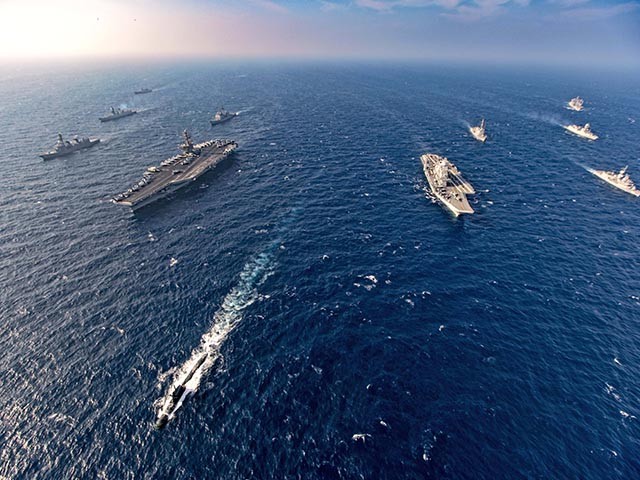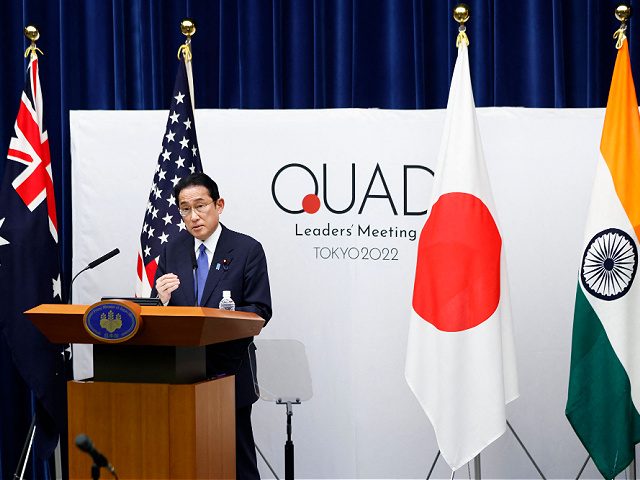Members of the Quadrilateral Security Dialogue, also known as the “Quad,” announced plans on Tuesday to launch a maritime initiative meant to combat illegal Chinese fishing in the Western Pacific Ocean, Kyodo News reported.
The heads of state of each of the Quad‘s members (the U.S., India, Australia, and Japan) met in Tokyo on May 24 for the latest summit of the security bloc, which serves as a counter to China’s growing influence in the Indo-Pacific region.
The pact’s new plan includes measures to help member states track illegal fishing and other unlawful activities carried out by China in the territorial waters of other nations. The Quad members issued a joint statement on Tuesday citing “the militarization of disputed features, the dangerous use of coast guard vessels and maritime militia, and efforts to disrupt other countries’ offshore resource exploitation activities” as among the actions by China it hoped to curb through the maritime initiative.
“Under the ‘Indo-Pacific Partnership for Maritime Domain Awareness,’ the Quad members are committing to offer a faster, wider and more accurate maritime picture of near-real-time activities in regional waters,” representatives of the U.S. government said at the May 24 summit.

Aircraft carriers and warships participate in the second phase of Malabar naval exercise, a joint exercise comprising of India, US, Japan and Australia, in the Northern Arabian Sea on Tuesday, Nov. 17, 2020. The four countries form the Quadrilateral Security Dialogue, or the Quad. (Indian Navy via AP)
“There is demand from countries in the Pacific and elsewhere to improve their ability to ‘know what is happening’ in their territorial waters and exclusive economic zones,” a U.S. government official told reporters on Tuesday.
Beijing claims several disputed islands and stretches of territory across marginal seas of the Western Pacific Ocean. China regularly orders its coast guard and fishermen to survey for natural resources in the maritime territory of other nations in the region, including Japan. Tokyo filed an official diplomatic protest with Beijing on May 9 to contest China’s violation of Japan’s territorial sovereignty earlier that day by vessels of the China Coast Guard.
“It is totally regrettable and intolerable that China’s coast guard ships have entered territorial waters around the Senkaku Islands,” Japanese Chief Cabinet Secretary Matsuno Hirokazu told reporters at the time.
“Such activities violate international law in the first place. We have lodged a protest through diplomatic channels and strongly urged them to leave the territorial waters swiftly,” he added.
China’s military conducted a nearly week-long operation near Japan’s Ishigaki Island, which is located about 105 miles south of the Senkakus, from May 2 to May 8. Japanese Defense Minister Kishi Nobuo described the Chinese military drills as “the closest ever to Japan to date” on May 10. Kishi said Chinese fighter jets and helicopters conducted “more than 100 landings and takeoffs” from the Chinese People’s Liberation Army Navy (PLAN)’s Liaoning aircraft carrier as part of the six-day operation, which took place less than 100 miles from Japan’s Ishigaki Island.

COMMENTS
Please let us know if you're having issues with commenting.